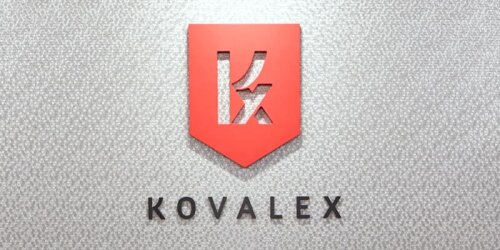Best Whistleblower & Qui Tam Lawyers in Guingamp
Share your needs with us, get contacted by law firms.
Free. Takes 2 min.
List of the best lawyers in Guingamp, France
About Whistleblower & Qui Tam Law in Guingamp, France
Whistleblower and Qui Tam laws play a crucial role in uncovering fraud and corruption, particularly concerning government contracts and public funds. In Guingamp, France, these laws provide legal protection to individuals who come forward with information about misconduct or fraud. While the concept of Qui Tam - allowing private individuals to sue on behalf of the government - is more rooted in American law, France has adopted several European Directives to ensure whistleblower protection. French laws such as the Sapin II Law contribute to this framework, offering certain legal safeguards to whistleblowers.
Why You May Need a Lawyer
You may require legal assistance in the realm of Whistleblower & Qui Tam for several reasons: - If you have observed unethical activities or fraud within your workplace or community and consider reporting it. - To understand your rights and protections as a whistleblower under French law. - If you are facing retaliation or discrimination as a result of your whistleblower activities. - To pursue a case where you stand to recover funds for fraudulent activities against public administrations. - If you are implicated in a fraud case and require defense or mitigation strategies. Engaging with a lawyer can provide you with the necessary counsel to navigate these complex legal landscapes.
Local Laws Overview
In Guingamp, as part of France, certain key laws are instrumental regarding whistleblower protections: - The Sapin II Law: Enhances the protection for whistleblowers, ensuring confidentiality, protection from retaliation, and establishing procedures for reporting concerns. - The Loi relative à la transparence, à la lutte contre la corruption et à la modernisation de la vie économique: Focuses on increasing transparency and fighting corruption, which indirectly supports whistleblower efforts. - EU Directives integrated into French law that ensures systematic whistleblower protections across various sectors. - French labor laws also include specific provisions protecting employees who disclose wrongful acts.
Frequently Asked Questions
What qualifies as a whistleblower under French law?
A whistleblower is someone who reports a legal violation or significant threat to public interest they have observed in their professional environment.
Am I protected against retaliation if I report misconduct?
Yes, French law, especially under Sapin II, provides protection against any form of reprisal or discrimination due to whistleblower activities.
Can I report misconduct anonymously?
While anonymity is possible, the effectiveness of investigations is often enhanced when the whistleblower's identity is known to authorities. French law emphasizes confidentiality over anonymity.
Is there a financial reward for whistleblowing in France?
Unlike the American Qui Tam provisions, French law does not typically include financial incentives for whistleblowing. The focus is mainly on protecting the public interest.
What are possible consequences if my report is false?
Intentionally false reporting, especially with malicious intent, can lead to legal repercussions against the whistleblower.
What kind of evidence should I collect if I intend to blow the whistle?
Any substantial documentation or electronic evidence supporting your claims, such as emails, contracts, or meeting records, can be critical.
How long do investigations usually take?
The duration of an investigation can vary based on complexity and the nature of the allegations, often extending from a few months to over a year.
Can I report past misconduct?
Yes, but it is advisable to report as soon as possible since delaying may complicate investigations or affect your legal protection scope.
What is the first step if I am considering reporting misconduct?
The first step is often to consult with a lawyer to discuss potential protections and the process before making any disclosures.
Where should I direct my report?
Reports can generally be made to your organization’s designated whistleblower channels, or directly to regulatory or governmental bodies when necessary.
Additional Resources
For further assistance, consider reaching out to: - Transparency International France: Offers guidance and supports whistleblowers. - The French Defenders of Rights (Défenseur des droits): Assists with protecting and upholding reported rights. - Legal aid organizations in Guingamp that can provide initial consultations.
Next Steps
If you require legal assistance regarding Whistleblower & Qui Tam issues, follow these steps: - Consult a Lawyer: Engage with a legal expert specializing in whistleblower laws to discuss your case confidentially. - Gather Documentation: Collect all relevant documents and evidence that support your claim. - Initiate Reporting: Make formal reports to your employer’s designated channels or relevant authorities. - Consider Support Networks: Contact advocacy groups that support whistleblowers through legal processes.
Lawzana helps you find the best lawyers and law firms in Guingamp through a curated and pre-screened list of qualified legal professionals. Our platform offers rankings and detailed profiles of attorneys and law firms, allowing you to compare based on practice areas, including Whistleblower & Qui Tam, experience, and client feedback.
Each profile includes a description of the firm's areas of practice, client reviews, team members and partners, year of establishment, spoken languages, office locations, contact information, social media presence, and any published articles or resources. Most firms on our platform speak English and are experienced in both local and international legal matters.
Get a quote from top-rated law firms in Guingamp, France — quickly, securely, and without unnecessary hassle.
Disclaimer:
The information provided on this page is for general informational purposes only and does not constitute legal advice. While we strive to ensure the accuracy and relevance of the content, legal information may change over time, and interpretations of the law can vary. You should always consult with a qualified legal professional for advice specific to your situation.
We disclaim all liability for actions taken or not taken based on the content of this page. If you believe any information is incorrect or outdated, please contact us, and we will review and update it where appropriate.








